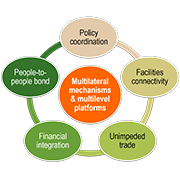 |
|
|
| National Strategy & Implementation |
|
| |
Completion date: May 2020

Could Hong Kong increase its soft power through its generosity in welcoming non-local students? Answers to this query may have policy implications well beyond the realm of education.
Hong Kong has long had a reputation for offering high-quality higher education and, over the past several decades, has witnessed a steady influx of non-local students to its tertiary institutions. However, exactly how open and “international” this sector should be remains understudied. Many argue that priority should be given to locals over non-locals in University Grants Committee (UGC) funding, while some have criticized the authorities’ preference for mainland Chinese over other non-local students. The aim of this research is not about finding the optimal way of distributing resources between local and non-local students in Hong Kong but to empirically explore the necessity and rationale of the policy.
Developed Western countries tend to welcome or even proactively recruit international students. This friendly approach is motivated by considerations beyond that of earning revenue, including a desire to restructure the population, reposition the country economically, and broaden the country’s cultural influence. Such a policy is in fact part of a strategy to project the country’s “soft power”, as Joseph Nye, who coined the term in 1990, argued. Unlike hard power, which is based primarily on military and economic might, the strength of soft power lies in unconscious ideological affinity, common values, and cultural attractions. In that sense, education may be an effective platform for nurturing such affinities.
The national “Go Global” strategy, as well as the recent Belt and Road Initiative, emphasize the necessity for China to further integrate with the world. Hong Kong has historically functioned as a hub connecting China and other parts of the world via socio-economic networks. Strong soft power would allow Hong Kong to play the role more efficiently. Based on this context and from the perspective of soft power, the research team aims to examine the question of whether the educational experience of Hong Kong-trained non-local university students—regardless of their ethnic background—could in fact strengthen Hong Kong’s soft power. Qualitative and quantitative approaches would both be adopted in the investigation, which would include a questionnaire survey, in-depth interviews, and a comprehensive analysis of literature and secondary data. It is hoped that the results of the research will offer empirical support for the formulation and implementation of related policies.
|
Full report:  |

|
|
| |
|
| |
|
|
|
|
|
|
 |
|
|
|